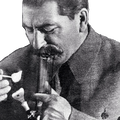

moaning labia



moaning labia



Please engage with contemporary, mainstream historians who have studied the now open Soviet archives. I recommend R. W. Davies and Stephen G. Wheatcroft, The Years of Hunger: Soviet Agriculture, 1931-1933. You can just read the introduction (all but the first edition) where they discuss and go into detail on Holodomor as genocide. It’s in English and pretty accessible to lay people. The rest of the book will likely be of no interest to you, as it’s part of a series of very dry academic publications by the authors that goes into the minutiae of Soviet agriculture. If that interests you, go for it.
This book is in libgen.
What would happen if capital succeeded in smashing the Republic of Soviets? There would set in an era of the blackest reaction in all the capitalist and colonial countries, the working class and the oppressed peoples would be seized by the throat, the positions of international communism would be lost.
Damn, really feels like we’ve been seized by the throat


The first step of any recovery program or mental health treatment is having stable housing.


Automating away my posting 


Too little, too late fuckers. You should’ve stopped being racist fuckheads years ago, screaming about them spying as your other halves at the FBI racially profile researchers and harass them into leaving.



During the cold war, the anticommunist ideological framework could transform any data about existing communist societies into hostile evidence. If the Soviets refused to negotiate a point, they were intransigent and belligerent; if they appeared willing to make concessions, this was but a skillful ploy to put us off our guard. By opposing arms limitations, they would have demonstrated their aggressive intent; but when in fact they supported most armament treaties, it was because they were mendacious and manipulative. If the churches in the USSR were empty, this demonstrated that religion was suppressed; but if the churches were full, this meant the people were rejecting the regime’s atheistic ideology. If the workers went on strike (as happened on infrequent occasions), this was evidence of their alienation from the collectivist system; if they didn’t go on strike, this was because they were intimidated and lacked freedom. A scarcity of consumer goods demonstrated the failure of the economic system; an improvement in consumer supplies meant only that the leaders were attempting to placate a restive population and so maintain a firmer hold over them.
If communists in the United States played an important role struggling for the rights of workers, the poor, African-Americans, women, and others, this was only their guileful way of gathering support among disfranchised groups and gaining power for themselves. How one gained power by fighting for the rights of powerless groups was never explained. What we are dealing with is a nonfalsifiable orthodoxy, so assiduously marketed by the ruling interests that it affected people across the entire political spectrum.



The Maoist uprising against the landlords was the largest and most successful proletarian revolution resulting in almost perfect redistribution of land.


Minigolf and driving ranges can stay. Death to golf courses.


Blue MAGA was a funny joke the first time I saw it. I’m sick of it now.


that’s probably a lot of sugar 


Heckin wholesome democracy, ignoring the will of the people to keep doing what you wanted anyway, after doing that for decades in Afghanistan and Iraq


Holy shit this gave me such whiplash lmao


Worth reading just for “Boss erotica author” 


I bet you’ve been keeping that dunk in your pocket for a while and you were so excited to use it, but I don’t think you understood the comment you were replying to.
That dunk is for when someone replaces one word with another to make it seem bad. The comment you replied to was pointing out that you had simply replaced the standard Western TM anticommunism with a more refined anticommunism, which you express as “anti-tankies”


The Hungarian uprising? The one prominently featuring Nazi collaborators? That the one you’re so concerned about?


Fascism is a vibe, bro, and they just give off that vibe.


Alright, the rule here is you only pass to the left. Rightists are not allowed at the sesh.


“I’ve raised enough kids, I’m not raising grandkids too”
And that’s the story of how I never had a relationship with my grandparents
They can also block specific comms. It’s how I stopped the AI art posts from filling up my All feed.